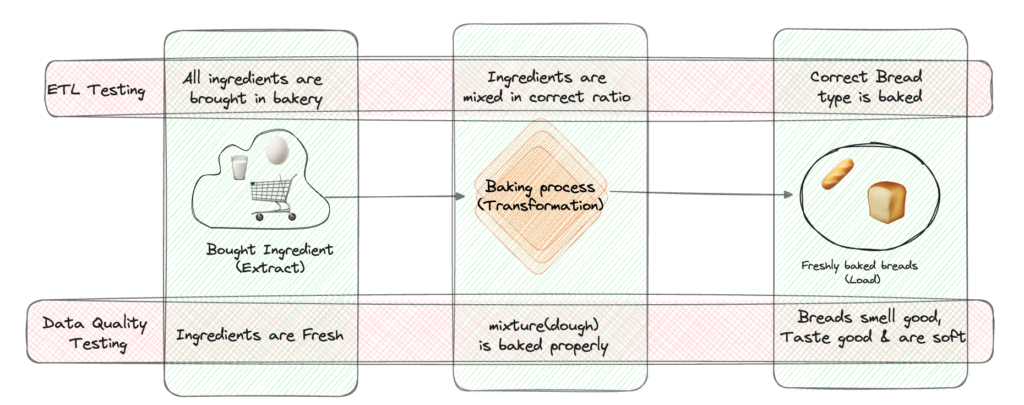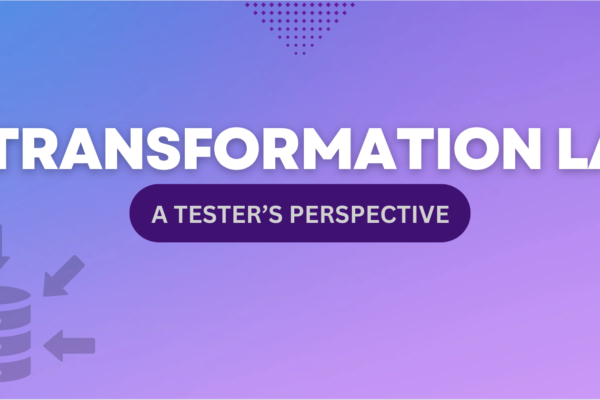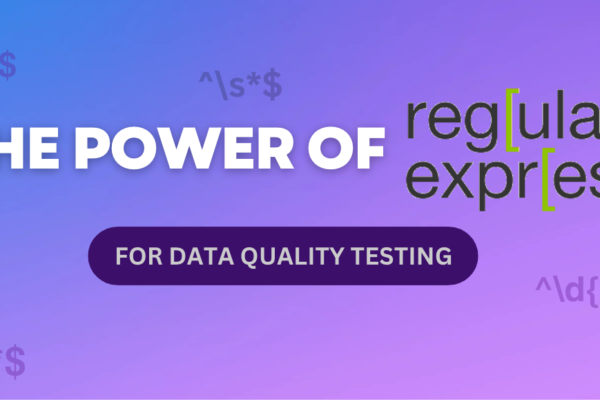
Data Quality Testing: Building Trustworthy Insights
In today’s data-driven world, the quality of information is paramount. Data quality testing ensures the accuracy, consistency, and completeness of data before it’s used for analysis or decision-making. Imagine navigating a road trip with an unreliable map; flawed data can lead to similarly wrong turns. Let’s delve into why data quality testing is crucial and how it sets itself apart from functional ETL testing.
Why Data Quality Testing Matters
Data is the lifeblood of many businesses. Inaccurate or incomplete data can lead to a cascade of issues: flawed reports, misguided decisions, and ultimately, lost revenue. Data quality testing acts as a safety net, identifying and rectifying errors before they cause problems.
Imagine a logistics company relying on inaccurate or incomplete customer addresses – deliveries would be delayed, customer satisfaction would plummet, and costs would soar. Data quality testing helps prevent such scenarios.
Here’s why data quality testing is crucial:
- Improved Decision-Making: Clean data empowers you to make informed choices based on accurate insights.
- Enhanced Efficiency: data quality testing streamlines operations by minimizing rework caused by bad data.
- Reduced Costs: Proactive data quality testing prevents costly downstream errors.
- Boosted Customer Satisfaction: Accurate data ensures a smooth customer experience, fostering trust and loyalty.
Data Quality vs. Functional ETL Testing: Distinct Roles
While both data quality testing and functional ETL testing ensure smooth data flow, their focus differs. Functional ETL testing verifies that the ETL (extract, transform, load) process functions as intended, transforming data from its source format to a usable format for analysis.
Data quality testing, on the other hand, assesses the quality of the transformed data itself, ensuring it adheres to predefined standards.
For Example, Imagine a bakery. Functional ETL testing verifies that correct ingredients (data) are brought and being mixed (transformed) correctly. Data quality testing ensures the ingredients are fresh and of high quality (data adheres to standards) before baking delicious cookies (insights).

When to Implement Data Quality Testing
Data quality testing should be an ongoing process, integrated throughout the data lifecycle. However, some key moments demand heightened focus:
- After data ingestion: Validate the quality of data entering your system or ETL pipeline are as per guideline and adheres to predefined standards.
- During data transformations: Ensure transformations haven’t introduced errors.
- Before data analysis: It will guarantee data integrity and quality for reliable insights.
- Regular Monitoring: Schedule periodic Data Quality Testing checks to identify and address emerging data quality issues.
Unveiling the Arsenal: Types of Data Quality Testing
Data quality testing encompasses various techniques, each targeting a specific aspect of data health. Let’s explore some common types with examples relevant to a logistics company:
- Accuracy: Does the data reflect reality? Data that will be used to prepare insights should be reflecting real data. Let’s see a few example
- Verifying customer phone numbers have the correct number of digits.
- Verify Order dates should not be of far future.
- Completeness: Are all necessary data points present?
- Ensuring no missing addresses in the customer database.
- Validates if every shipment record includes an origin, destination, and weight.
- Validate if all order records should have quantity, price and order date.
- Consistency: Does the data adhere to defined formats?
- Confirming all zip codes are in the same format (e.g., 12345).
- Verifying consistent date formats for order entries.
- Confirms product names use consistent capitalization and punctuation throughout the database.
- Uniqueness: Are there duplicate records?
- Identifies and eliminates duplicate customer accounts with the same email address.
- Validate there are no duplicate order entries.
- Timeliness: Assesses if data is up-to-date and reflects recent changes.
- Verifies that inventory levels are updated after every shipment or receipt.
- Validity: Does the data adhere to defined business rules? Some time product have specific format or standard. For instance.
- OrderID should have specific formates i.e. <warehouse code><region><unix_timestamp>.
- Checking if all product codes correspond to existing inventory items.
Conclusion: Building a Foundation of Trust
Data quality testing is an essential safeguard in the world of data. By ensuring the integrity of your data, you empower your organization to make informed decisions and achieve success. This is just the first step in our exploration of ETL and data testing.
Stay tuned for the next article in this series, where we’ll delve deeper into the intricacies of data testing tools and techniques






Piyush Goyal
Very informative and detailed, keep it up.